 In competitive environments, innovation drives business results. And while once-leading organizations can hang on for a time without innovation, they’re set up to be rapidly caught by the competition.
In competitive environments, innovation drives business results. And while once-leading organizations can hang on for a time without innovation, they’re set up to be rapidly caught by the competition.
That’s particularly true in organizational management of the last several decades. Few game-changing conceptual shifts have occurred in the management of recent years. Rather, information technology has been at the heart of redefining what it means to work, to work well, to be productive, and to provide a valuable service.
If you already have a bent towards solving problems with technology, you may find yourself in a great position to excel at the heart of organizational innovation and change. Particularly with training in in-demand technology for organizations, leadership, general business, and management.
That’s what information technology MBAs are for! Here at MBACentral we’ve covered a wide range of B-School degrees, and think that information technology MBAs are some of the best MBA programs that can be chosen (for the right student, with the right goals).
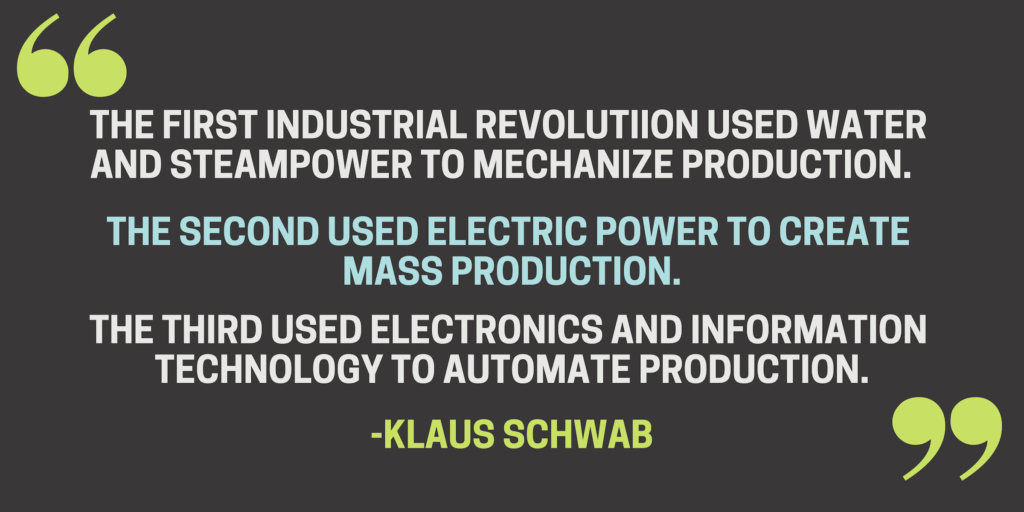
Check out some of our additional information technology MBA-related content below, or scroll down to see what you can do with an information technology MBA.
- The Best Online MBA Programs
- The Best Online Supply Chain Management MBA Programs
- What is an Information Technology MBA?
- The Best States For MBA Graduates
- The Fastest-Growing MBA Careers
- The Highest-Paying MBA Careers
- What Are the Differences Between an MBA and an Executive MBA?
- What is a Part-Time MBA?
- What is a Dual MBA?
- A Guide to MBA Program Accreditation
What is an Information Technology MBA?
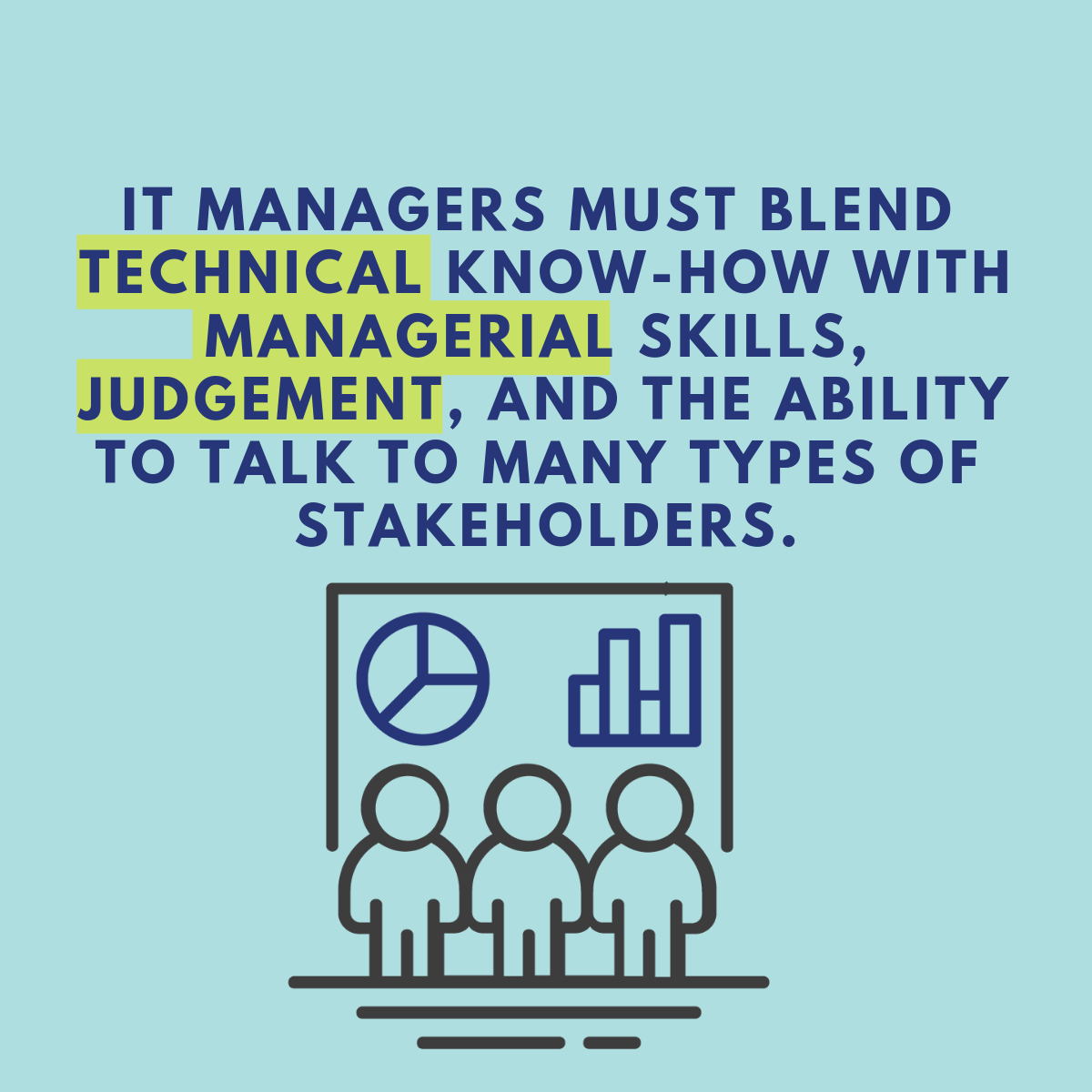
Information technology MBAs are first and foremost general MBA programs. The majority of courses you will take in an information technology MBA, while somewhat personalizable, will have to do with general business, management, and leadership courses. MBAs are short for master’s of business administration, which is a professional masters-level graduate degrees. The key difference between a professional and a research masters degree is that professional programs often don’t require a thesis and are more centered around applied skills for work.
Secondarily, information technology MBAs allow students to choose from a range of specialization courses related to information technology. Generally, 3-5 courses may be chosen from within a specialization cluster.
The core curriculum of an MBA program rarely varies much between schools, though students may have the choice of a few courses that each satisfy each of the below requirements. A typical core curriculum for master’s of business administration degrees includes the following.
- Management
- Finance
- Statistics
- Accounting
- Microeconomics
- Marketing
- Macroeconomics
- Operations
- Business Ethics
Though MBA students may specialize — such as is the case with an information technology MBA — one of the core objectives of MBA programs is to prepare graduates for managerial and business positions in a range of roles. Many of the above roles may seem outside of the scope of information technology, but these courses support general decision making and management that applies to many roles.
After core courses are completed, students in information technology MBA programs will often get to choose between 3 and 5 information technology-centered courses.
Common offerings focusing on information technology within MBA degrees include:
- Business Intelligence and Analysis Technology
- Emerging Technologies for Business
- Business Process Analysis and Design
- Database Development and Applications
- Managing Information Systems
- Project Management
- Enterprise Systems Deployment
- Big Data Analytics Management
- Among Others
One final note about information technology MBAs is a description of what formats these degree typically come in. Commonly information technology MBAs may be offered as
- Part-time programs
- Night Programs
- Weekend Programs
- Fully-Online Programs
- Hybrid Programs
- Full-time Programs
- Professional MBA Programs
This means that there are many options out there for pursuing an information technology MBA program. Programs can be found where classes are at night, on the weekend, online, online and in-person, fully in-person, and so forth.
One program type that typically does not provide a focus on information technology (specifically) are executive MBA programs.
Information Technology MBAs Vs Related Degrees
A host of degree types have cropped up around information technology. Masters-level degrees commonly seen in information technology roles may include:
- Masters in Management Information Systems
- Master of Science in Information Technology
- Master of Science in Information Technology and Management
- Master of Science in Management – IT Concentration
- Master of Science in Leadership – IT Concentration
So what makes an information technology MBA a good choice?
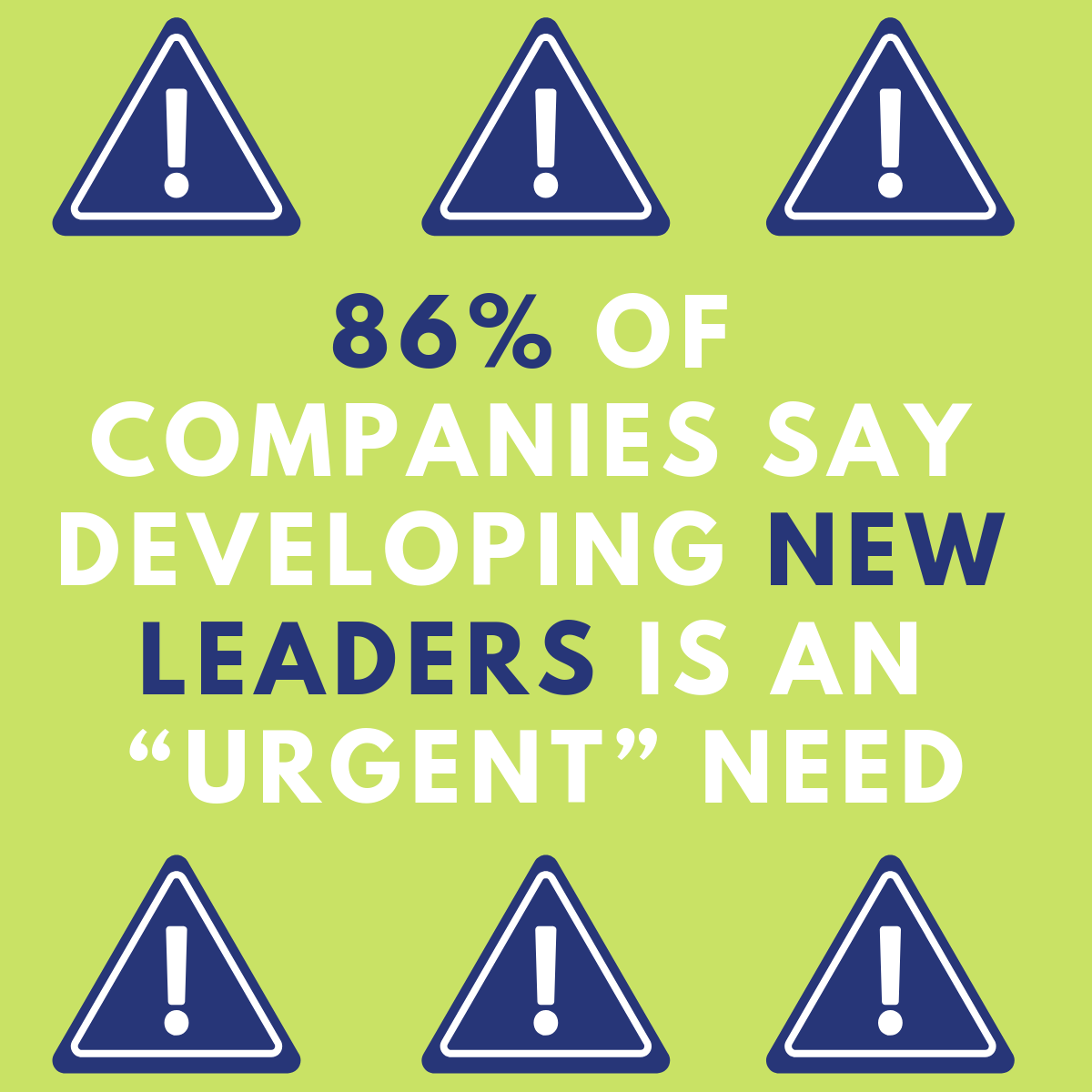
For one thing, MBA programs were some of the earliest adopters of online and flexible delivery methods. This means that MBA programs have more experience delivering quality programs that are also flexible and fit into your business work life.
Secondly, MBAs are more well known than many of the above degree types. This leads to many future or current employers knowing basically what to expect from an MBA graduate. Additionally, many employers are willing to help with tuition costs for workers seeking an MBA.
Finally, most of the above degrees go into more detail in one area that an MBA covers. If you want to primarily learn about leadership, or about information technology, an MBA may not be the right choice. But if you would like a well-rounded degree that introduces you to many aspects of organizational management, an MBA is the choice. This also means that MBA-holders are found in a wider variety of positions than those with the above degrees. If you think you may jump around between roles throughout your career, an information technology MBA can be a great choice.
How Do I Gain Admission to an Information Technology MBA?
The first step to gaining admission to an information technology MBA is to discern that this is the degree type you would like to pursue. Browse our description of this degree type above, as well as our answer for what you can do with an information technology MBA below.
Secondly, you’ll want to find a group of programs that you are interested in. Start by making sure the schools offering these programs are regionally accredited. This ensures that credits from your program can transfer, federal financial aid will be available, and employers will generally respect your degree.
You’ll also want to make certain that the programs you are interested in have concentration courses that interest you. While general requirements in MBAs are often similar between programs, concentration courses can vary quite a bit. As most students only get to take 3-5 of them, make sure they count!
Once you’ve found a few programs you are interested in, be sure to check out their admissions criteria. Do they require a certain undergraduate GPA, a number of years of work experience, a GMAT score, or references? If they do then do you qualify for baseline admissions standards? If not, is there anything you can do to “bridge” this gap?
Be sure to check out financial details. How much does the program cost? What percentage of students get financial aid? Do you have an employer that might help pay? Finally, inquire with financial aid at the school and fill out your Federal financial aid application (FAFSA). Very few students actually pay the full “sticker price,” particularly if they inquire and look at different aid options.
If you meet the baseline criteria for entry, and the financial set up works for you, be sure to study up on how to send in a great application. Plenty of resources online can tell you how to select the proper people for recommendation letters, how to raise your GMAT score, and how to generally prepare yourself for B School.
Think you might be interested in an information technology MBA? Be sure to check out our ranking of
The Best Online Information Technology MBA Programs.
Not quite settled on a degree type? Be sure to check out our more general FAQs below. Or check out our rankings page for more information about a wide variety of MBA program types.
Can I Get an Information Technology MBA Degree Online?
While online education is increasingly common, many students who have not taken online courses in the past are surprised that most degree programs can now be taken online. This is particularly true of MBA programs.
MBA programs were some of the first to heavily adopt online delivery, just as they were some of the first to pioneer night classes, weekend classes, and distance education generally. This is partially due to the fact that MBA programs tend to be forward-looking compared to other disciplines, and partially due to the demographics that tend to pursue MBAs. Many MBA students are in their late 20’s-50’s, and are working full-time.
While online academic programs work very well for many students. There are definitely some trade-offs with brick and mortar programs that students should consider.
Some of the benefits of taking courses online include (1) the ability to study when you want, (2) lower fees than many brick and mortar programs, (3) no need to move or change work locations to pursue a course of study, (4) many self-paced programs.
On the other hand, some of the downsides many students cite in pursuing online academic programs include (1) online courses requiring more self direction, (2) lower access to support or networking events, (3) the fact that it’s harder to get to know professors or classmates, (4) missing out on the “x-factor” that is experiencing graduate school.
With both of the above said, the choice between a traditional and online information technology MBA is a personal one. There are plenty of quality programs in both camps, and both options work well for a wide variety of students.
Think you might be interested in an information technology MBA? Be sure to check out our ranking of
The Best Online Information Technology MBA Programs.
Not quite settled on a degree type? Be sure to check out some of our more general FAQs below. Or check out our rankings page for more information about a wide variety of MBA program types.
What Can I Do With an Information Technology MBA Degree?
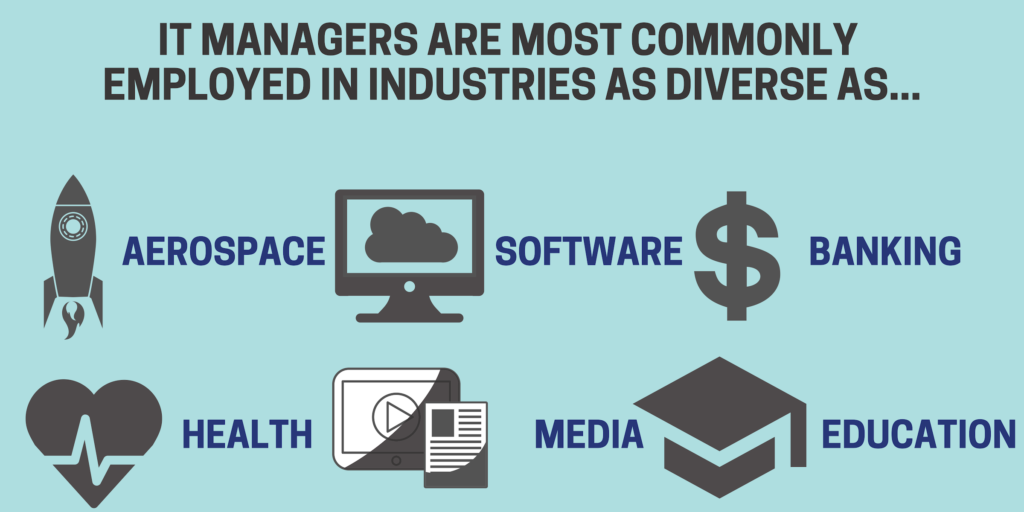
Information Technology jobs earn an average of 78% more than the average of jobs requiring the same education across other industries.
That’s just one of many, many stats that explore the range of opportunities in steering businesses into our new digitally-centered world.
High-quality information technology managers are also a rare bunch, as IT management requires enough working knowledge of the technology being created to talk with technical team members, and the ability to explain complex technical problems to non-technical stakeholders.
Additionally, IT operations often employ different management schemes than many other industries. Iterative and software-centered design cycles can be very foreign to managers who have worked in manufacturing, customer service, human resources, accounting, or many other disciplines.
This makes many IT manager positions well compensated compared to peers in other industries. As the range of technological devices and services have increased, so too have the range of areas in which to specialize for managers.
Some of the most common positions available to those with a Information Technology MBA include the following:
- Software Project Manager
- IT Infrastructure Project Manager
- Help Desk Manager
- Project Manager
- Program Manager
- Information Systems Security Manager
- Information Technology Manager
- Product Owner
- Data Analyst
Managerial Positions an IT MBA Can Prepare You For
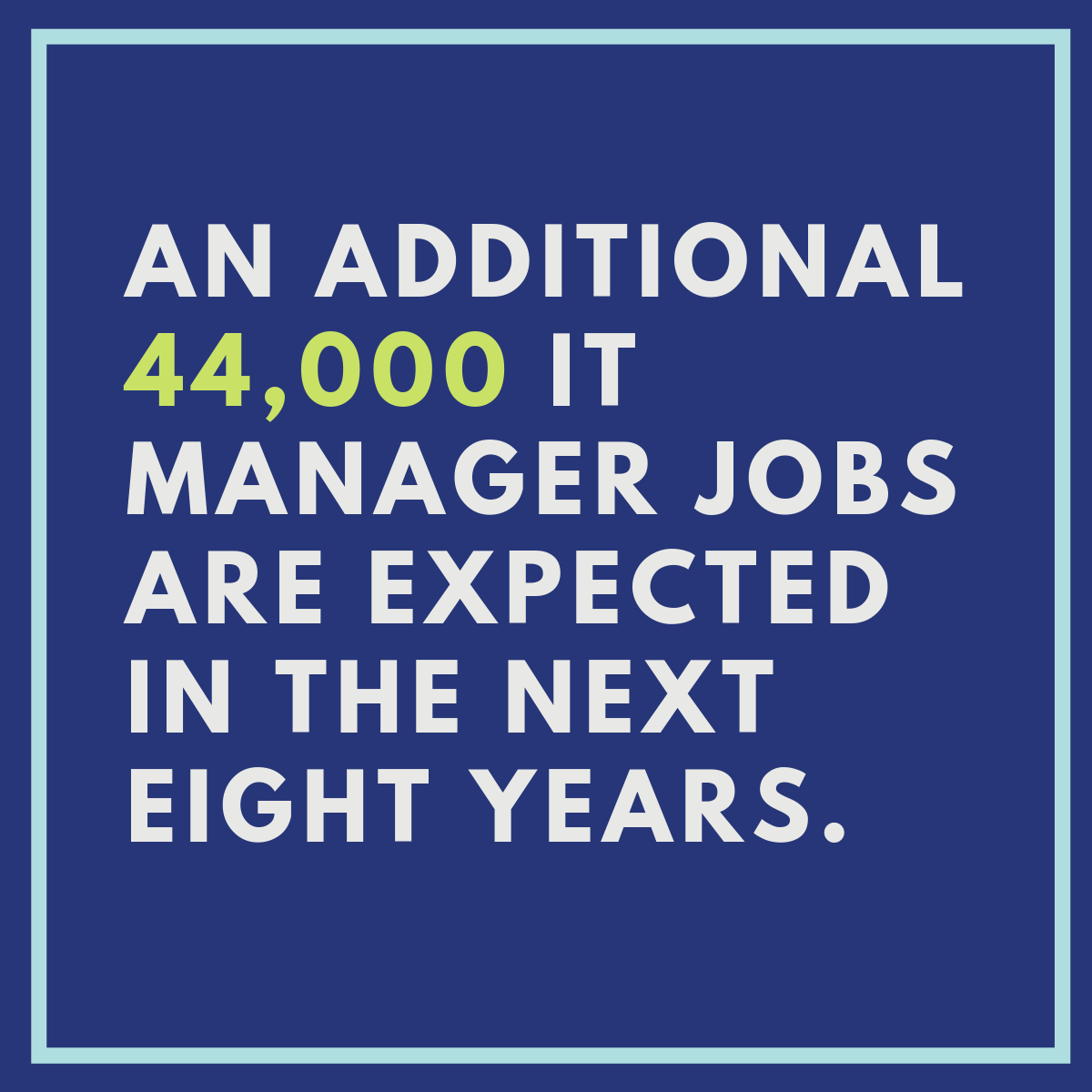
Two of the most logical paths to take after completing (or while working on) an information technology MBA are both project manager roles. MBA programs generally prepare graduates to start managing small teams and inform graduates of enough to deal with other departments, human resource matters, leadership, and a variety of stakeholders.
In the case of an information technology MBA, concentration courses — depending on those taken — particularly prepare graduates to be software project managers or information technology infrastructure project managers. While many project managers in these roles have some experience already in software or information technology infrastructure, many students have worked a few years before an MBA in the field they would like to advance in.
While both jobs are similar in their functions, they support different aspects of an organization. Software project managers are tasked with being consistent organizers and strategizers of software projects, from beginning to end. Many software producing entities employ iterative development tactics that may be different from project management in other industries. So software project managers should be prepared to jump into agile development, waterfall development, scrum, or other such management methodologies.
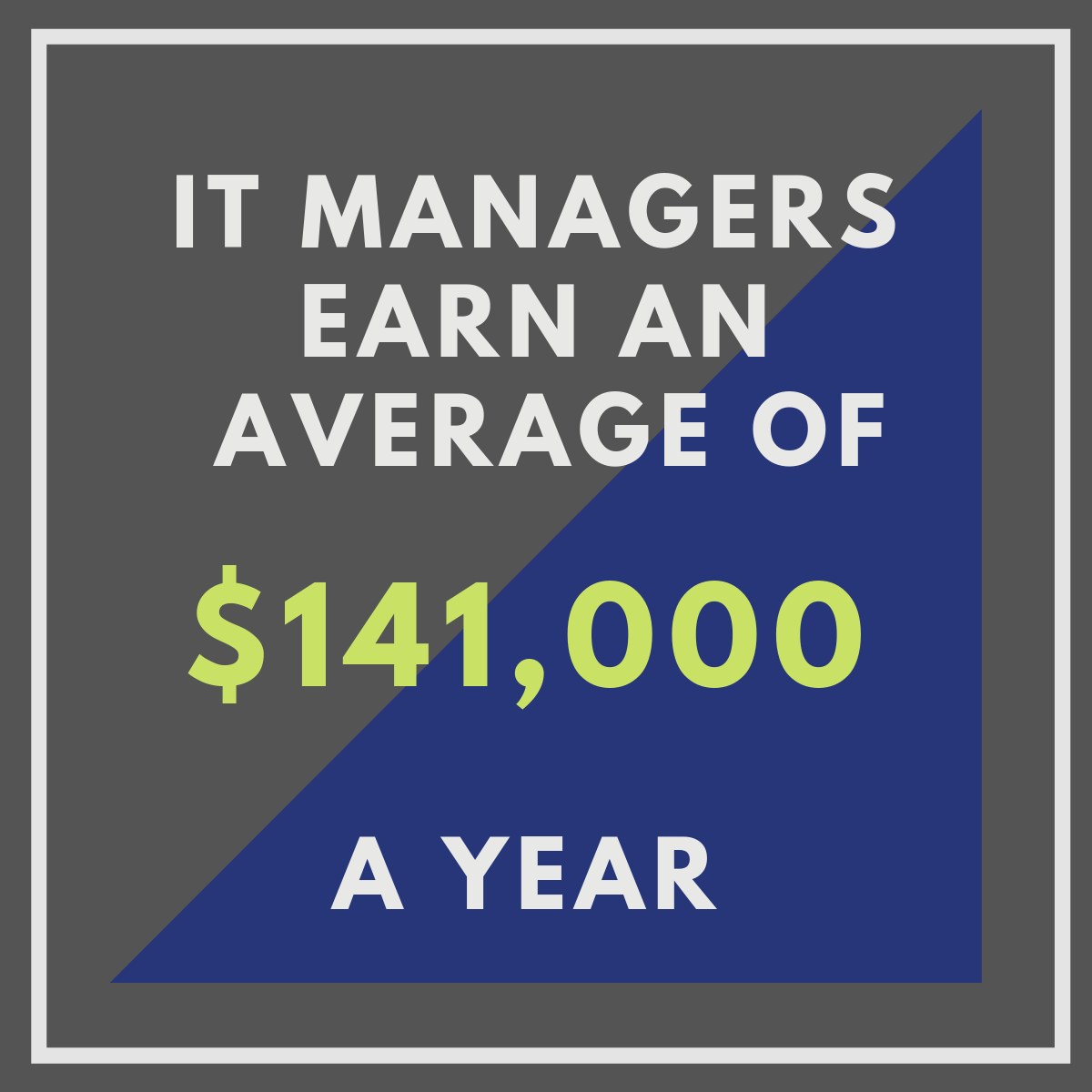
Project managers within software generally oversee projects from start to end. This involves being a liaison for stakeholders in the project. Establishing the scope of the project, creating plans, allocating resources, checking in on progress, scheduling tasks, and initiating a test cycle when all of this is done (software development generally then just restarts with the results of tests or user input).
While this number depends on the industry in which you are, your education, and your experience, the average software project manager in America makes $92,259 a year.
Information technology infrastructure project managers provide similar services to software project managers, yet for projects related to the information technology infrastructure within an organization. This role includes establishing the scope of IT infrastructure projects, creating plans for projects, interviewing and reporting to stakeholders, testing, and tracking central KPIs. Information technology infrastructure projects can vary greatly, yet often have to do with networking, upgrading or changing hardware, hosting or cloud solutions, or even physical security measures.
Information technology infrastructure project managers are in high demand, and can often lead to advancing into operations management or cyber security management. Almost all organizations that have a large enough information technology infrastructure to require a team to run it needs a project manager for this role. This means that demand is strong, and with a shortage of skilled workers in the area compensation is often competitive. The average salary for these roles is $97,000 across industries in America.
Nearly every organization of any size has an IT help desk (and an IT Help Desk Manager). This can be the front-line response team for internal workers that are having technical difficulties, the first responders to customers using a technology service, or both. Having an IT help desk that is productive and well managed can reduce downtime, increase an organization’s ability to adopt new technology and policies, and help to smooth over issues with clients.
With that said — like customer service — IT help desks can be particularly demanding environments to provide excellent service in. Many IT help desks operate in some fashion around the clock, and sometimes very large user groups may utilize the same IT Help Desk.
You need a special sort of IT manager that both understands the common varieties of support tickets, and is particularly good at managing others expectations to excel in an IT help desk environment. Likely for that reason, IT Help Desk Managers are well compensated. The average salary for an IT Help Desk Manager is currently $93,773 nationwide, ranging up to $110,000 for the top 10% of earners.
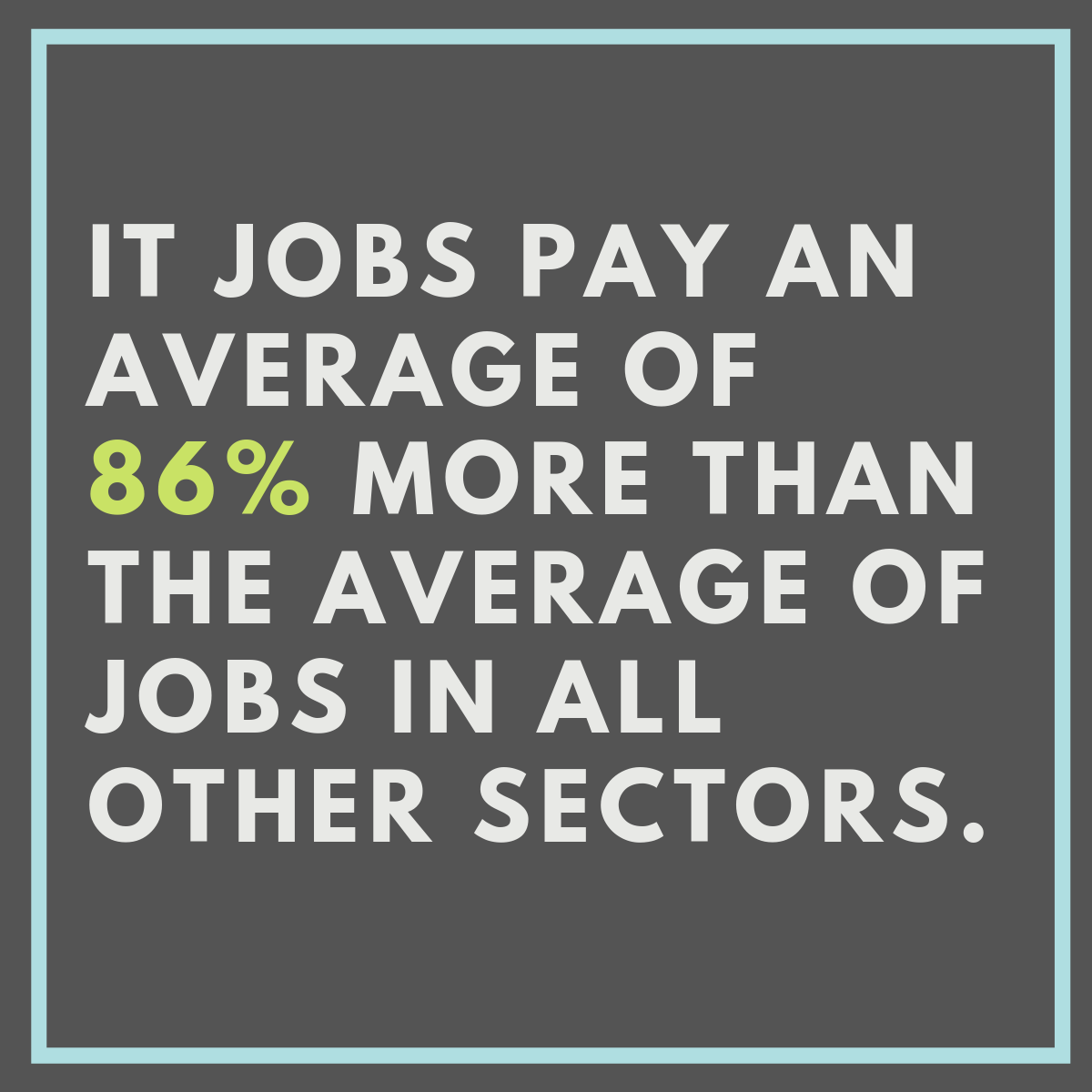
One of the most in-demand forms of IT-related management are Information Systems Security Managers. As the shortage of skilled cybersecurity workers has reached epic proportions, and need have only grown, so too has the demand for skilled managers of these workers.
One thing to note is that many cybersecurity workers have very wide skillsets bridging both software, hardware, networking, and social components. Managers within information systems security will be expected to have some level of expertise in all of these areas as well. For those that do — or can gain this experience — the rewards can be great, however. The average salary of $119,915 for information systems security managers can rise up to $150,000 for the top 10% of earners.
Non-Managerial Positions an IT MBA Can Prepare You For
Information technology MBAs have proven themselves to be a great degree to progress up the managerial ladder. But for some graduates, a little experience is needed first.
Good thing IT MBAs can help to prepare students for a variety of non-managerial positions. One such job is that of data analyst.
IT MBA graduates can provide a uniquely tailored skill set for data analyst positions within IT-centered departments of organizations. While data analysts do spend a good deal of time “crunching numbers,” ideally they do so with an aim of supporting key business decisions and key performance indicators. The wide-ranging business education of an MBA can be particularly well suited to a position that prepares reports and original research for a variety of departments.
Many data analysts also learn the ins-and-outs of data-driven decision making. This can make data analysts great candidates to move into management as time goes on. For a more “entry level” position, data analysts also have strong earnings. The average data analyst position in America pays $65,000 a year, with the top 10% of earners making closer to $80,000 a year.
A second position crucial to business and fitting for a recent graduate of an IT MBA is that of product owner. In many ways product owners function the same as project managers, but often in charge of smaller teams working according to agile or scrum methodologies. This means the creation of a minimum viable product and continual iteration on this product with the help of user feedback. This blueprint for making a product is common with information technology fields, and is covered in many IT MBA curriculum.
Product owner positions also pay well. The average pay for product owners is $72,000 for workers with less than 5 years of experience.
If you think you might be interested in one of the lucrative, fulfilling, and in-demand careers, be sure to check out our ranking of The Best Online Information Technology MBA Programs.
Not quite settled on a degree type? Be sure to check out some of our more general FAQs below. Or check out our rankings page for more information about a wide variety of MBA program types.
- The Best Online MBA Programs
- What is an Information Technology MBA?
- The Best States For MBA Graduates
- The Fastest-Growing MBA Careers
- The Highest-Paying MBA Careers
- What Are the Differences Between an MBA and an Executive MBA?
- What is a Part-Time MBA?
- What is a Dual MBA?
- A Guide to MBA Program Accreditation